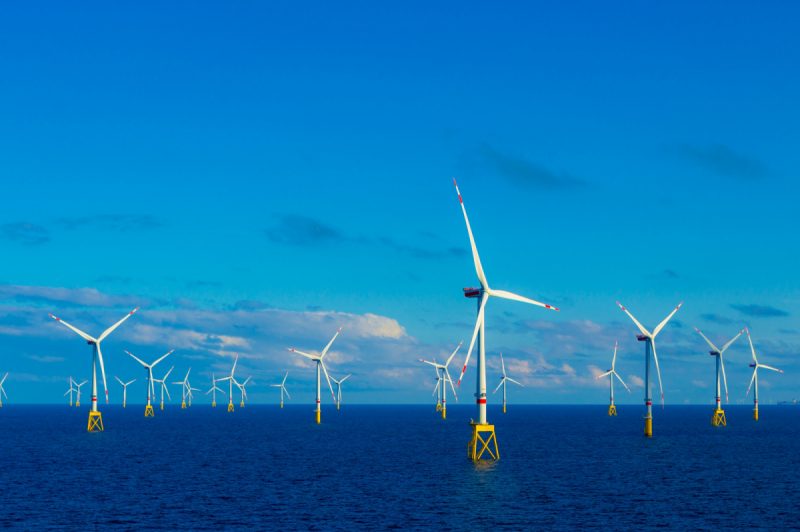
Driving innovation in the offshore energy sector to fully establish the wind sector and to accelerate the wave and tide sector in becoming commercially ready.
The University of Edinburgh has been the centre of academic research in Offshore Energy for over 50 years and is well placed to deliver this ambition and provide innovative solutions, in collaboration with partners.
The UK Governments have set a target of 30GW of offshore wind by 2030, with reports showing there is capacity of +130GW of offshore wind around UK coastlines. In addition, the Scottish and UK Governments want to continue support of UK based wave and tidal technology developers in maintaining their world leading position.
To decarbonise transportation we need 42% more electricity, to decarbonise heat we need 45% more electricity, offshore wind has the potential to help achieve that.
Key capability
With over 200 researchers working in Energy, the University of Edinburgh has breadth and depth of research that delivers a multi-disciplinary approach in our work with partners such as EDF, SSE, Orbital, SME and National Grid.
We bring together this leading academic expertise and access to cutting-edge facilities to help resolve large scale energy challenges that can minimise our impact on nature.
Key facilities
FloWave
A wave and current simulation tank for use in the testing and development of novel ocean energy technologies
FastBlade
The world’s first fest facility that uses regenerative hydraulic technology to offer high-quality, low-cost fatigue testing of tidal blades and other composites structure for research and product development
Policy and Innovation Group
Analysing the dynamics of innovation in offshore renewable energy systems
Energy Lab
The Energy Lab is a unique facility that allows physical models/prototypes of marine energy devices, generators and drive train to be integrated into mixed hardware/real time software representations of offshore energy collection and transmission
Key offshore renewable-related research projects
RealTide Advanced monitoring, simulation and control of tidal devices in unsteady, highly turbulent realistic tide environments
LEANWIND Logistic Efficiencies And Naval architecture for Wind Installations with Novel Developments

Professor in the Institute for Energy Systems and Mechanical Engineering Discipline, School of Engineering at the University of Edinburgh. He specialises in the modelling and design of powertrains and generators for offshore wind turbines and the integrated electrical-magnetic-mechanical design of direct drive electrical machines. He is also the Head of Institute for the Institute of Energy Systems.

Markus Muller is the lead for the Electrical Machines and Power Electronics research group in the Institute for Energy Systems within the School of Engineering at the University of Edinburgh. His research covers the interface of electrical and mechanical engineering with a particular focus in the design of novel power take off systems in renewable energy converters such as direct drive wave, wind and tidal current systems.

Henry Jeffrey is a specialist in ocean energy roadmaps, action plans and strategies. He is co-director for SuperGen ORE (Offshore Renewable Energy) UKCMER and leads the Policy and Innovation Group in the University of Edinburgh’s Institute for Energy Systems. He also chairs the European Energy Research Alliance (EERA), Ocean Energy Joint Programme (JP) and International Energy Agency’s (IEA) Ocean Energy Systems (OES) programme as well as collaborating on numerous European ocean energy projects.

Business Development Executive for Energy